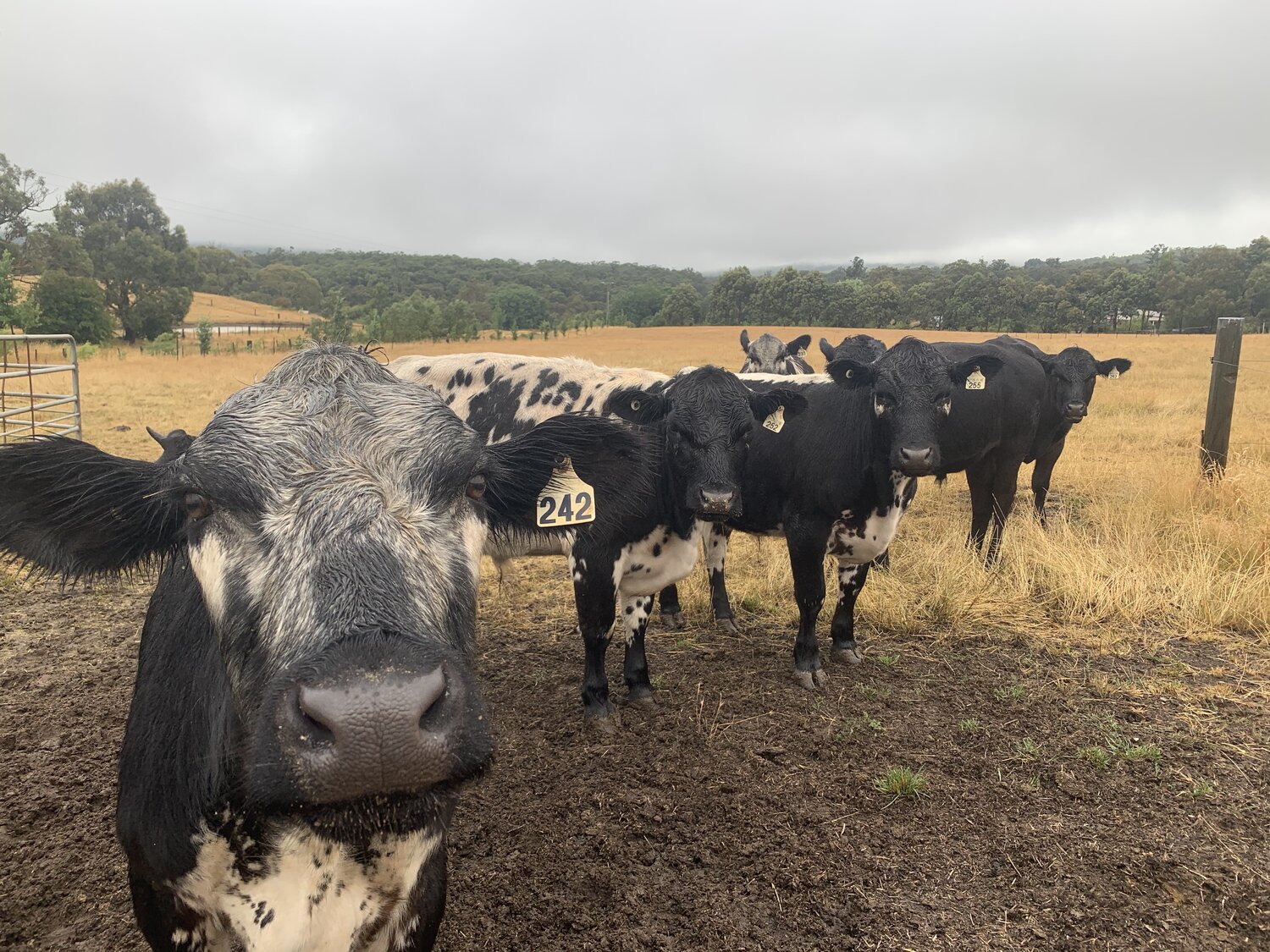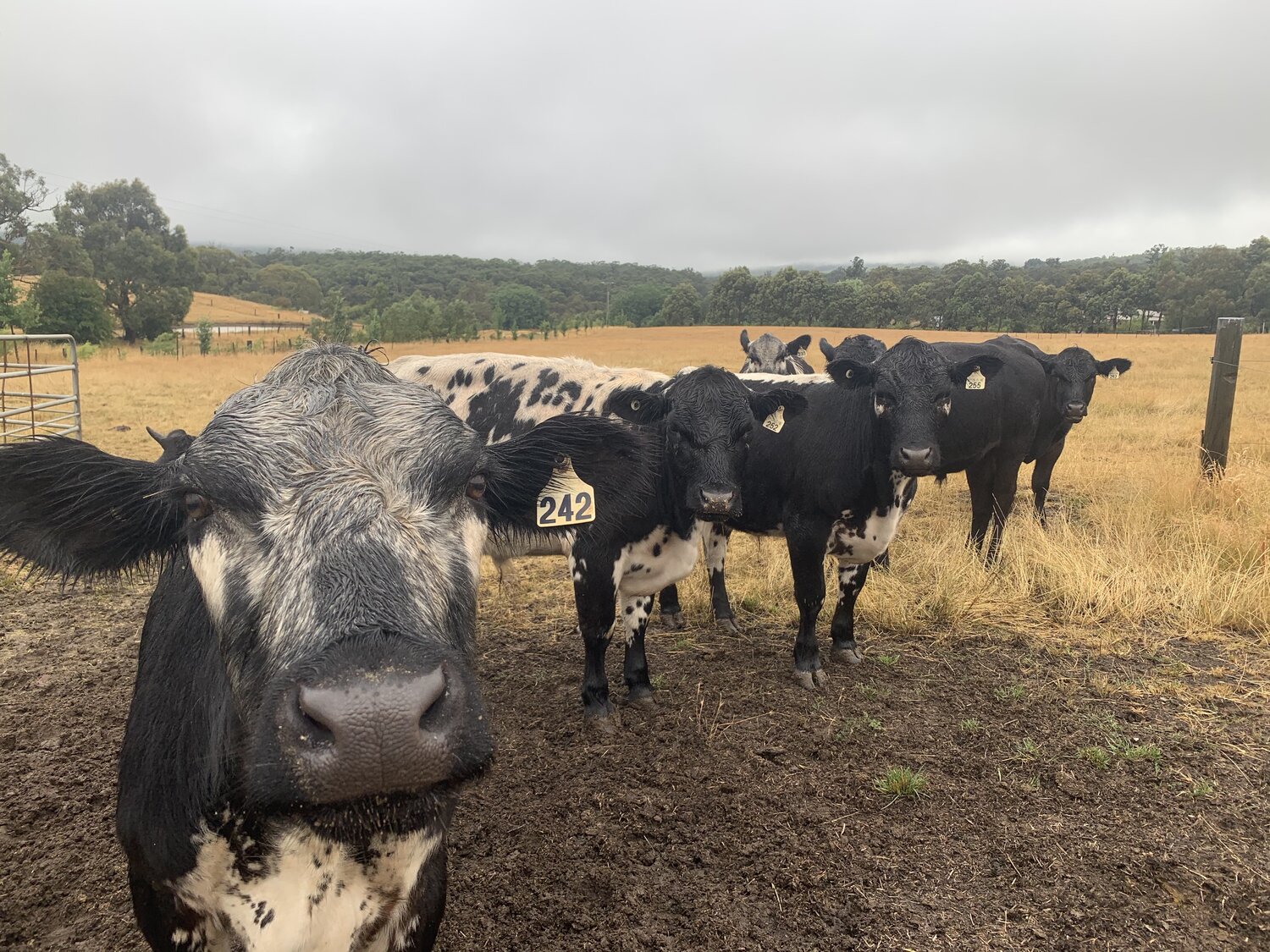
Having landed on a Wednesday, our original schedule would have seen us butcher the 12 pigs taken to the abattoir the day before our return for deliveries Wednesday and Thursday following. The addition of three animals that had to be shot, leading to three extra beef carcasses that had to be butchered, meant that Simon and I, along with help from a variety of others over the days, stood and cut meat for five days straight. On Tuesday as we set out to make sausages, the farmhand resigned.
Wednesday we welcomed yet another wonderful neighbour Mara and her lovely volunteers to the boning room to help us make it through the double slice & pack in a morning, which saw me on the road just after lunch to make the regional deliveries. Thursday I delivered to our metro CSA members, and yesterday I sat down to do the first bit of administrative work I’d had time for since we landed 9 days earlier.
When I wrote to our CSA members to tell them of the crisis and that it would almost certainly mean a reduction in their beef allocation over the coming months, their expressions of solidarity and sympathy brought me to tears again and again. Not only were they happy with our offer to backfill with pork to keep their total kilos the same, many offered to take no beef until we have enough while continuing to pay the full amount. One dear member John who has been with us since nearly the very beginning offered to pay five years up front if that would help us buy more cattle. More tears.
This is what solidarity looks like, people turning up in tangible ways for each other as well as the emotional ways. And the solidarity economy of a CSA saves farmers in cases like this. Any other system would have seen us take a major blow to our income. We still suffered the grief, work, and stress, and now must deal with the major loss of what we paid for the 13 animals we lost, and are focused on how to raise more money to buy more cattle much sooner than we had planned. However, our monthly income will look remarkably the same aside from less farm gate sales with no beef in the fridge – all reserved for our loyal members.
On Thursday, I posted about our disaster on the Jonai Farms Facebook page, and vegans picked it up and launched a relentless attack on us and our integrity, something that I have a pretty thick skin for, but less so just now while feeling so distraught and vulnerable already. Another generous friend jumped in to help delete and block the abusers, but after 24 hours of this I pulled the pin and made the unprecedented move to unpublish the farm’s page.
And then I wept (again).
They say that what doesn’t kill you makes you stronger. Having survived the past 10 days, I guess that make us Hercules.
We’ve learned a few lessons from this awful awful experience.
For one, we need greater financial resilience. We’re guilty of spending everything on farm projects and travel, diminishing our capacity to absorb a shock like this. We now have a (very ambitious) goal to build our savings up to a year’s income. (This will take awhile, but it’s good to have goals, hey?)
For another, we need a secure area to store feed that might be dangerous for the cattle. While the cattle were actually given access to the paddock where the peanuts had been stored to keep them away from them, another story could have been them breaking into the paddock through the electric wire. We need to ensure what did happen and what could happen can never happen again.
Finally, we re-affirmed something we gratefully already knew. We are fortunate to be part of a community that cares for each other deeply. The expressions of sympathy and love, the offers of help, the boots on the ground, and knives in hands have kept us buoyed in the face of the greatest adversity we’ve faced at Jonai Farms. Thank you all for everything you are and do. We’re still here, and planning to make 2020 another joyful and productive year. Together we’ve got this.
